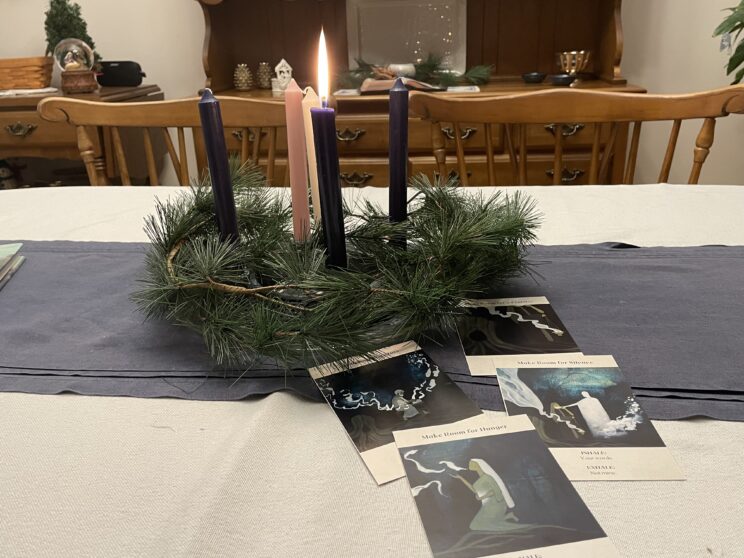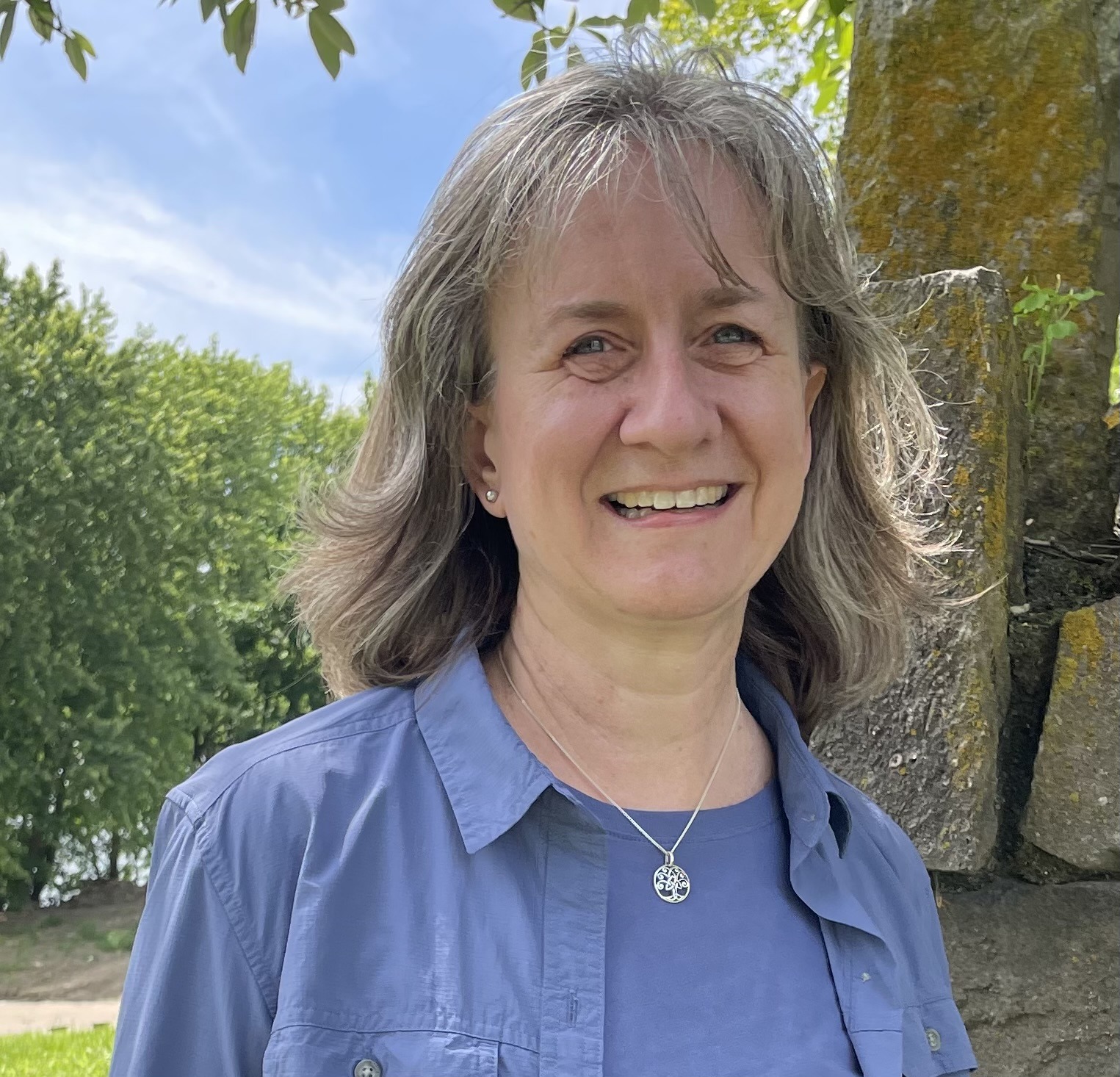We are in a time of waiting in the church year. During Advent, we remember Israel’s waiting for a messiah and Mary’s waiting for the birth of Jesus. We also wait in hope for Christ’s future return.
I look forward to this season not only for its theological significance but also because waiting is a fundamental part of life. Waiting for the end of the semester. Waiting to hear about an article or book’s publication. Waiting for a job offer. Waiting to hear a diagnosis. Waiting for an upcoming celebration.
 Pilgrimage has something to teach us about waiting. Between the story that pilgrims leave at home and the one they are seeking to encounter at the end of their journey, they exist in an in-between, a liminal space. Even in the activity of the journey, they are waiting to arrive at their destination. This liminal, waiting space can be uncomfortable, raise questions, and even foster fears. In this place of uncertainty, they can be tempted to listen to voices that detract from the focus of their journey in order to alleviate the discomfort for a while.
Pilgrimage has something to teach us about waiting. Between the story that pilgrims leave at home and the one they are seeking to encounter at the end of their journey, they exist in an in-between, a liminal space. Even in the activity of the journey, they are waiting to arrive at their destination. This liminal, waiting space can be uncomfortable, raise questions, and even foster fears. In this place of uncertainty, they can be tempted to listen to voices that detract from the focus of their journey in order to alleviate the discomfort for a while.
Sound familiar?
As a place of much ‘in-betweenness’, the academy engages individuals in many moments of liminality and times of waiting – consider graduate school, research projects, job searches, and tenure. Scholars on this journey through the academy find themselves often waiting to get to the next stage. It’s not easy.
Yet, as pilgrims come to learn, being attentive to God during the waiting is a gift of these liminal journeys. They learn that certain habits help them attune to God and God’s invitations in these liminal spaces, keeping them on the path – or redirecting them as needed. But most importantly, these practices reveal God’s presence in all moments. Such practices include:
- saying morning, afternoon, or evening prayers;
- praying short phrases of scripture while walking;
- bringing images of Gospel stories to mind; and
- taking time to feel God’s pleasure in play
These practices don’t merely keep us heading in the right direction, God has created us so that they help transform our minds. As the psychiatrist Curt Thompson writes,
“All of the spiritual disciplines both require and support the skill of mindful attention, which enables us to set our minds on the Spirit. When we pay attention to what we are paying attention to and when God’s voice (telling us we are his sons and daughters whom he loves and in whom he takes great pleasure) is the most resonant tone to which we are listening, our minds – specifically the prefrontal cortex-tend to be more integrated.” (Anatomy of the Soul, 178).
 Each day we find ourselves in liminal spaces and in need of ways to help us become aware of God’s presence. While walking across campus to class, waiting for the response to a grant proposal, or researching the next project we encounter opportunities to turn our minds to God. This could look like repeating a prayer of thanksgiving before turning on the computer or praying words of praise while taking deep, slow breaths before entering the classroom. It could be writing a psalm in response to a conference or singing a hymn as you drive to work.
Each day we find ourselves in liminal spaces and in need of ways to help us become aware of God’s presence. While walking across campus to class, waiting for the response to a grant proposal, or researching the next project we encounter opportunities to turn our minds to God. This could look like repeating a prayer of thanksgiving before turning on the computer or praying words of praise while taking deep, slow breaths before entering the classroom. It could be writing a psalm in response to a conference or singing a hymn as you drive to work.
 Where do you find yourself in a liminal space now? Where is the waiting getting to you? During this time of Advent, I invite you to explore one new spiritual habit that will help you to focus on God in the waiting. You may want to
Where do you find yourself in a liminal space now? Where is the waiting getting to you? During this time of Advent, I invite you to explore one new spiritual habit that will help you to focus on God in the waiting. You may want to
-
-
-
-
- light candles of an Advent wreath (you can buy one premade or gather four candles from around your house),
- read a chapter of Luke every day until Christmas (by then you will have read through the entire Gospel), or
- reflect on a favorite hymn of the season and then write your own (something like O Come, O Come Emmanuel).
-
-
-
Maybe you would like to follow one of the many Advent devotionals that provide prayers and reflections for these days. Here is a sampling.
The Visual Commentary on Scripture:
There are also past articles and devotions on the ESN blog related to Advent and prayer. Use the search box to the right of the screen to find what you are interested in. If you have a favorite spiritual habit to practice during Advent or other times, send me an email, I’d love to add them to the list.
However you choose to spend this time of waiting, I pray that you will encounter the gift of Immanuel, God’s presence with us, throughout the season.

Jamie serves with InterVarsity Graduate and Faculty Ministries as an Associate Director of Faculty Ministry and as Director of the Emerging Scholars Network. Among other things, in this work she enjoys the opportunity to put into practice her doctoral research in literary pilgrimage and training in spiritual direction. She also ministers with the local faculty community at the University of Cincinnati.

Leave a Reply